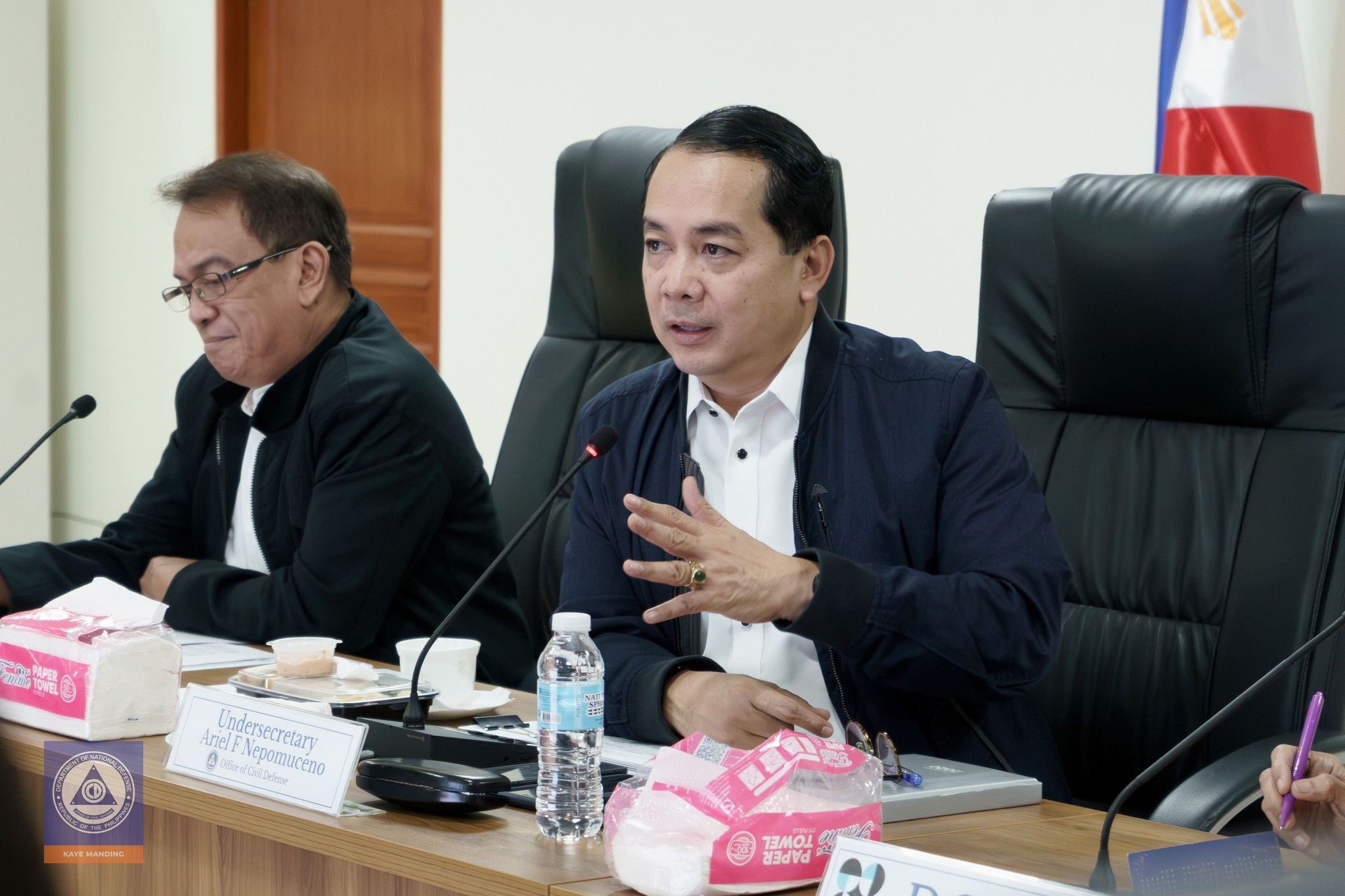News
PH needs to work double time on disaster response efforts
By Priam Nepomuceno, Philippine News Agency

Nepomuceno also cited the significance of investing in disaster mitigation to reduce the impact of future calamities. (File Photo: Civil Defense PH/Facebook)
MANILA – The Office of Civil Defense (OCD) said the country must work double time to further enhance disaster response capabilities despite the improvements it has implemented.
“We have made some gains but we should not stop because the typhoons are also stronger. We should check if we have enough systems in place. If not, we must continuously improve,” OCD administrator Undersecretary Ariel Nepomuceno said in a statement Thursday night.
He added that these measures are needed considering that global disasters are expected to worsen in the coming years.
“I wish it weren’t true but it is a science-based prediction,” Nepomuceno said, referring to the United Nations Office for Disaster Risk Reduction’s projection that disasters will increase by 40 percent by 2030.
“So we must give this primary importance and a sense of urgency. We must do what we can before it gets too late,” he added.
Underscoring the importance of collaboration and cooperation during disasters, Nepomuceno added that the Philippines is eager to share its knowledge and experiences in disaster management with other countries.
“Not a single country in the world can face disasters alone. Even a rich country like Turkey needed assistance in dealing with a major disaster,” he said, referring to the devastating 2023 earthquake that resulted in more than 50,000 deaths and countless injuries.
Nepomuceno also cited the significance of investing in disaster mitigation to reduce the impact of future calamities.
“We should not regret our investments in disaster resilience. These investments will save our lives, ” he added.
The Philippines hosted for the first time the Asia-Pacific Ministerial Conference in Disaster Risk Reduction (APMCDRR) this week, gathering governments, civil society organizations, the private sector, science, academe, and stakeholder groups to strengthen cooperation on disaster resilience and risk reduction in the Asia-Pacific region.
About 4,000 delegates from 70 countries gathered in Manila to put urgency on strengthening regional efforts to ensure a safer future for all.
Death toll for ‘Big One’ unacceptable
Meanwhile, Nepomuceno said the alarming projection of 30,000 to 50,000 potential fatalities in the event of the anticipated “Big One” earthquake is “unacceptable”.
“It is unbearable to contemplate tens of thousands of fatalities. We are not adequately prepared for this scenario,” he added.
Nepomuceno also asserted that true readiness for the “Big One,” which is feared to strike Metro Manila, can only be achieved when the potential casualty figures are reduced to a bare minimum.
“We must all work together to address this urgent concern,” he urged.
The OCD chief also called upon all stakeholders to intensify their efforts, emphasizing the need for a multifaceted approach that includes engineering solutions, rigorous enforcement of building regulations, and a commitment to discipline among the populace.
“We need robust structures for homes, buildings, bridges, schools, hospitals, and other critical infrastructure. It is essential for everyone to comply with the Structural Code of the Philippines and adhere to building permit requirements,” he stated.
Recognizing the Philippines as one of the most disaster-prone countries globally, he underscored the importance of prioritizing disaster preparedness.
“This is a shared responsibility. We urge everyone, especially the media, to raise awareness about the escalating risks associated with disasters. It is vital that the public is informed about available technologies that can aid in their preparation for, and response to, calamities,” Nepomuceno added.
He cited tools like Hazard Hunter, a publicly available platform that provides information on the proximity of homes to potential earthquake and tsunami hazards.
Nepomuceno noted that President Ferdinand R. Marcos Jr. has mandated the intensification of disaster preparedness efforts utilizing science-based solutions. However, he emphasized that individual responsibility is paramount.
“It is our job to assist you, but ultimately, the responsibility for your safety lies with you. The government may not always be by your side, so it is crucial that you are equipped with the necessary knowledge and technology to take appropriate action. Preparedness is key,” Nepomuceno concluded.
Integrate disaster response in planning, LGUs told
Interior Secretary Jonvic Remulla called on local government units (LGUs) to implement disaster risk reduction planning as a means to protect themselves against calamities.
In a news release on Friday, Remulla said the Department of the Interior and Local Government (DILG) recognizes the importance of mainstreaming disaster risk reduction and climate change adaptation in local planning.
“Proper land use planning is crucial in determining how communities develop and in reducing their vulnerability to hazards like floods, landslides, and storms,” he said during the 3rd plenary session on localization and urban and rural resilience of the Asia-Pacific Ministerial Conference on Disaster Risk Reduction (APMCDRR) 2024 at the Philippine International Convention Center in Pasay City on Thursday.
He also shared that the DILG has been helping LGUs achieve full compliance on the preparation, updating, and strict implementation of their Comprehensive Land Use Plan (CLUP).
“Beyond warning systems, preparedness drills, and emergency response, strategic land use planning can help achieve climate and disaster resilience,” said Remulla.
According to Remulla, a total of 651 or around 39 percent of cities and municipalities have updated their CLUPs; 837 or 51 percent are up for updating; and the remaining 146 or 9 percent still have no CLUPs.
He likewise called for concrete plans amid growing issues on climate change, citing proactivity and strategy as key to long-term resilience. “We do not have the luxury of time because climate change is here, it’s here now.”
“We still have a lot of ground to cover. We hope that this activity will trigger concrete actions that will strengthen local capacities and build resilient communities,” he added. (With Lloyd Caliwan/PNA)





















